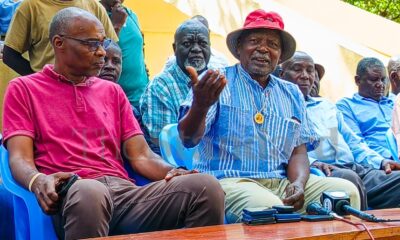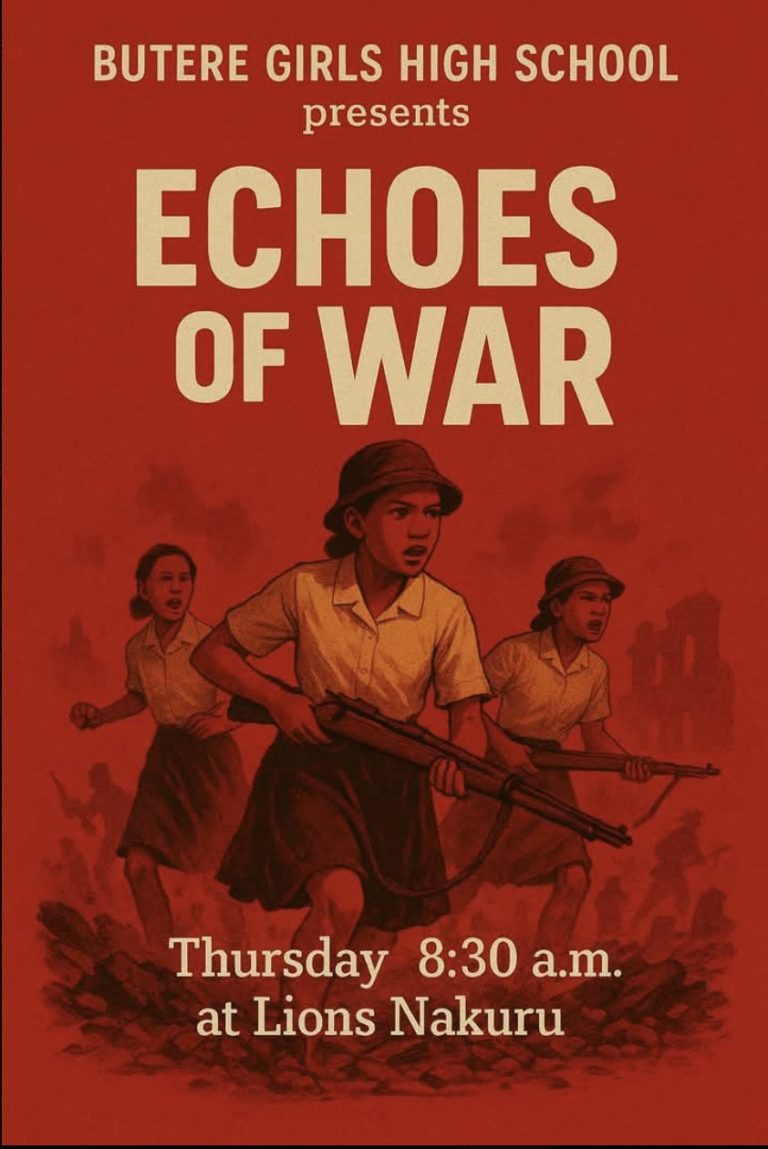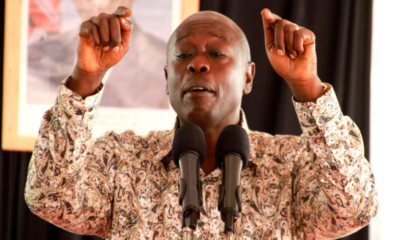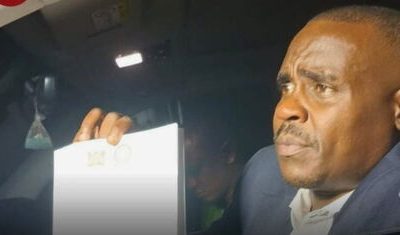Politics
5 Key Facts About Butere Girls’ Play ‘Echoes of War’ That Has Sparked Government Backlash

Butere Girls’ play Echoes of War, written and directed by former Kakamega Senator Cleophas Malala, has sparked a heated debate in Kenya.
The play, staged by Butere Girls High School, has drawn the attention of the police, judiciary, and the public.
It was nearly shut down after being banned from the ongoing Kenya Schools and Colleges National Drama and Music Festival due to its political content. However, a court later reversed the ban, though controversy continues to surround the play and its creators.
Here are five key things to know about the play, which has sparked a national conversation about freedom of expression, youth empowerment, and state censorship.
1. A Play About Youth, Civil Liberties, and Post-Conflict Governance
Echoes of War is set in a fictional nation recovering from civil war. It focuses on a generation of young people working to rebuild society, hold leaders accountable, and use digital platforms to promote democracy and justice.
The play explores themes of governance, technology, and civil liberties, which resonate deeply with Gen Z, a generation increasingly vocal in political matters.
2. The Government Tried to Ban It, and the Courts Stepped In
Authorities initially banned Butere from performing the play because of its critical portrayal of the government.
On April 3, 2025, Justice Wilfrida Okwany of the High Court ruled in favor of free expression and allowed the school to participate in the national drama festival, suspending the ban.
3. Malala’s Clash with Police
Despite the court ruling, Malala claims DCI officers arrested him while he was preparing the students for their performance.
A video shared online shows a tense standoff outside Kirobon Girls High School in Nakuru, where Malala confronts police officers blocking him from accessing Butere Girls’ students for rehearsals.
Later, police teargassed journalists who were covering the situation, forcing them to flee.
4. Butere Girls’ Play, Malala and History of Defiant Theatre
This is not Malala’s first time causing controversy in the drama festival. In 2013, he wrote Shackles of Doom, a politically charged play banned by the Ministry of Education but performed after court intervention.
Malala’s background in theater has made him a provocative figure in Kenya’s arts scene.
5. A Larger Debate About Art, Politics, and Youth Expression
The Echoes of War controversy raises questions about the limits of artistic expression in Kenya. Critics argue that efforts to suppress the play show a growing intolerance toward dissent, especially among youth.
Although the play was reinstated and rehearsals resumed, it remains unclear whether Butere Girls will face further obstruction.
This year’s festival, meant to celebrate creativity and innovation, has instead turned into a battleground between state power and artistic expression.
Whether Butere Girls perform at the national stage or not, the impact of their play has already sparked a debate about Kenya’s democratic identity.
Kenya Insights allows guest blogging, if you want to be published on Kenya’s most authoritative and accurate blog, have an expose, news TIPS, story angles, human interest stories, drop us an email on [email protected] or via Telegram
-

 Business2 weeks ago
Business2 weeks agobetPawa Empire Crumbles: Mr Eazi’s Betting Gambit Unravels Amid Partner’s Shadowy Deals
-

 Business1 week ago
Business1 week agoMinnesota Fraud, Rice Saga, Medical Equipment Deal: Why BBS Mall Owner Abdiweli Hassan is Becoming The Face of Controversial Somali Businessman in Nairobi
-

 News1 week ago
News1 week agoDCI Probes Meridian Equator Hospital After Botched Procedure That Killed a Lawyer
-

 Politics1 week ago
Politics1 week agoYour Excellency! How Ida’s New Job Title From Ruto’s Envoy Job Is Likely to Impact Luo Politics Post Raila
-

 Investigations2 weeks ago
Investigations2 weeks agoEXPOSED: SHA Officials Approve Higher Payments for Family, Friends as Poor Patients Pay Out of Pocket
-

 News1 week ago
News1 week agoKenya Stares At Health Catastrophe As US Abandons WHO, Threatens Billions In Disease Fighting Programmes
-

 Business1 day ago
Business1 day agoCooking Fuel Firm Koko Collapses After Govt Blocks Sh23bn Carbon Deal
-

 Politics2 weeks ago
Politics2 weeks agoJaramogi Clan Tells Raila Jr, Winnie Against Disrespecting Their Uncle Oburu, Warns of Curses





























